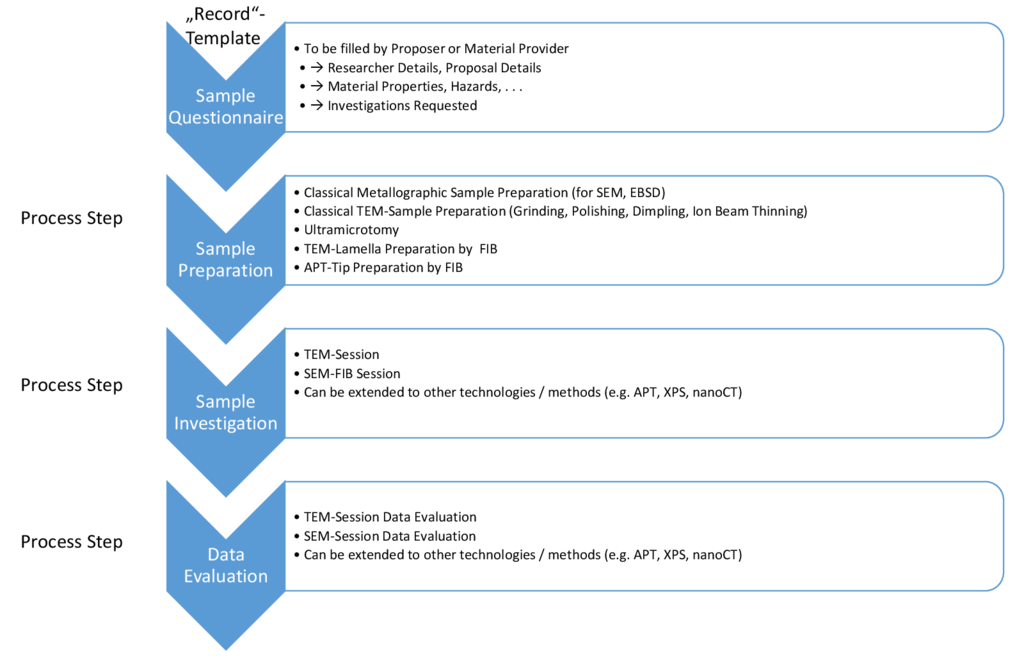Karlsruhe Data Infrastructure for Materials Science (Kadi4Mat)
Without suitable modelling, simulation and analysis methods, the constantly growing request for information on materials behavior as well as the amounts of data from simulations and experiments will no longer be recordable. An important aspect is to be able to perform modelling and simulation in an efficient and rapid way. Here, the massive parallel solver Pace3D is used for materials research. To perform the corresponding data analysis smoothly, a structured storage of research data and related metadata is essential. In addition to uniform data storage, such systems can overcome inter-institutional hurdles, generate specific models, compare theoretical and experimental data and offer reproducible workflows for data analysis. Furthermore, linking data with persistent identifiers enables other researchers to reference them in their work.
The Karlsruhe Data Infrastructure for Materials Science (Kadi4Mat) is a software to tackle the challenges mentioned, by combining new concepts with established technologies and existing solutions. More details can be found on the Kadi4Mat website. A demonstrator is available.
Members of the new Laboratory for Simulation and Data Management are part of different NFDI consortia (NFDI4Chem, NFDI4Ing) and contribute to the establishment of the science data center Molekulare Materialforschung (MoMaF). This engagement strengthens the work of KNMFi and allows to generate synergies with respect to the generation of infrastructure and software development.
The KNMFi Laboratory for Simulation and Data Management including Kadi4Mat are under construction. Please contact us for questions and suggestions or if you are interested to collaborate with us.
| Name | Phone | |
|---|---|---|
| Michael Selzer | +49 721 608-45311 |

Karlsruhe, October 30, 2024 – A team of technology experts at the KNMFi user facility has published a practice paper (DOI: 10.5334/dsj-2024-050) detailing their approach to implementing the web-based application Kadi4Mat (KadiWeb) as an electronic laboratory notebook (ELN). The ELN is combined with an integrated MaTeLiS instrument database to support the principles of Findable - Accessible - Interoperable - Reusable (FAIR) research data.
Facing challenges in transmission electron microscopy (TEM), focused ion beam (FIB), atom probe tomography (APT), and scanning electron microscopy (SEM), the team developed a strategy to document the complex processes in the KNMFi user facility. The experimental steps in TEM, APT, and FIB/SEM, as well as traditional sample preparation steps in a metallographic lab, were analyzed and translated into key-value pairs to create the respective templates. This is easily achievable without programming knowledge.
The MaTeLiS instrument database in Kadi4Mat enables users to find instruments at KIT and link them to experiments. In a practical example, the team demonstrated how the developed Kadi4Mat templates can be used to document experimental procedures in the TEM, APT, and FIB environments and how the MaTeLiS instrument database is integrated into Kadi4Mat. Experimental data can easily be added to the records, enabling FAIR data publication. The strategy can be extended to other KNMFi technologies.
Read more
